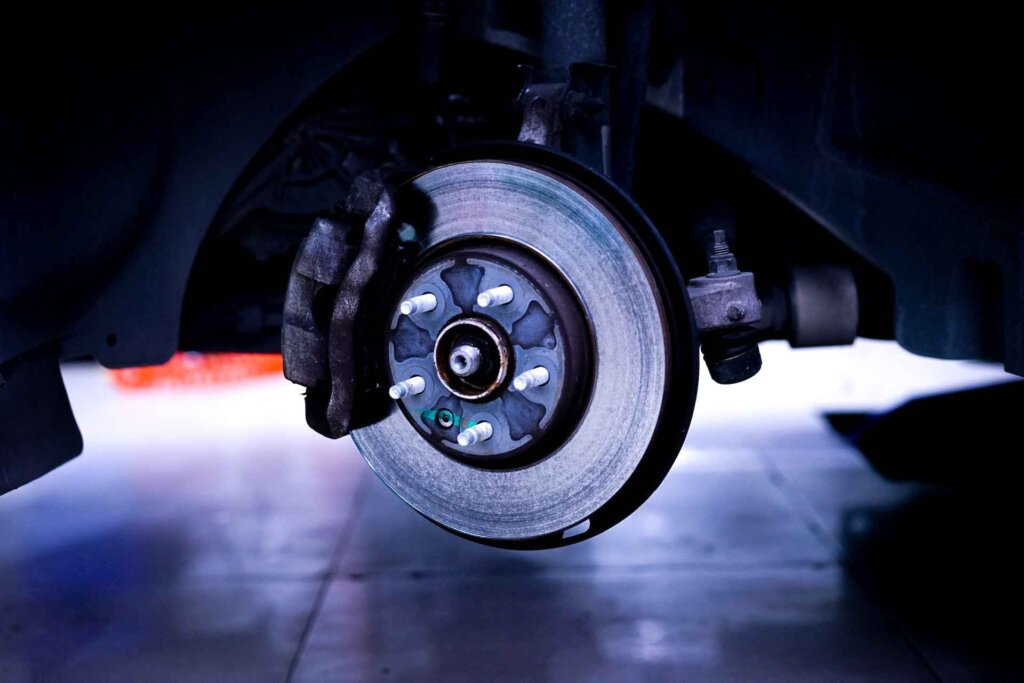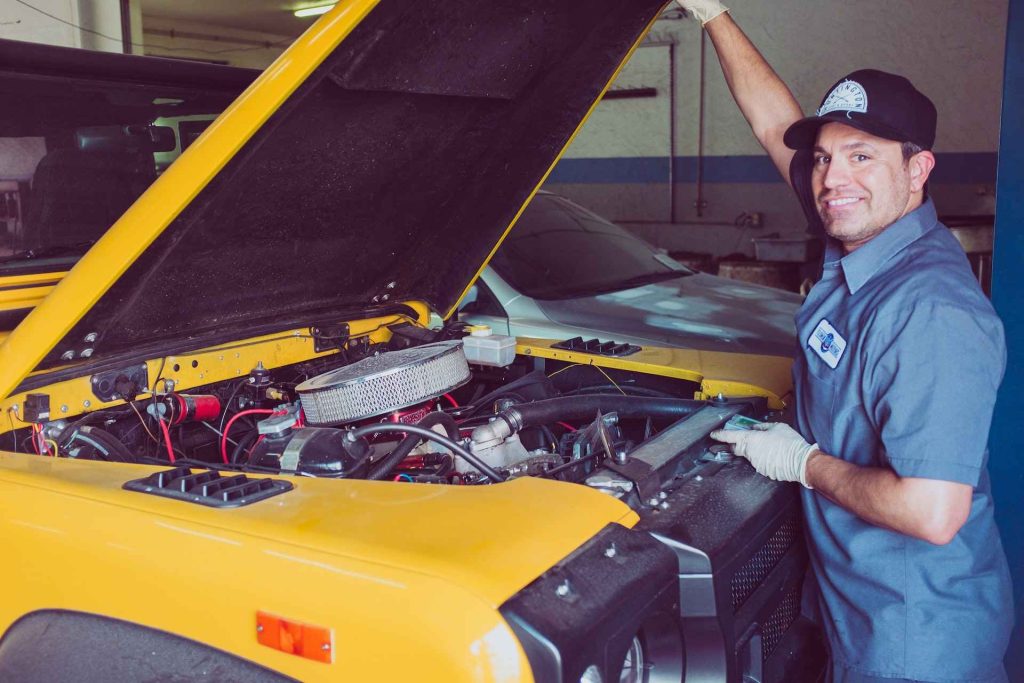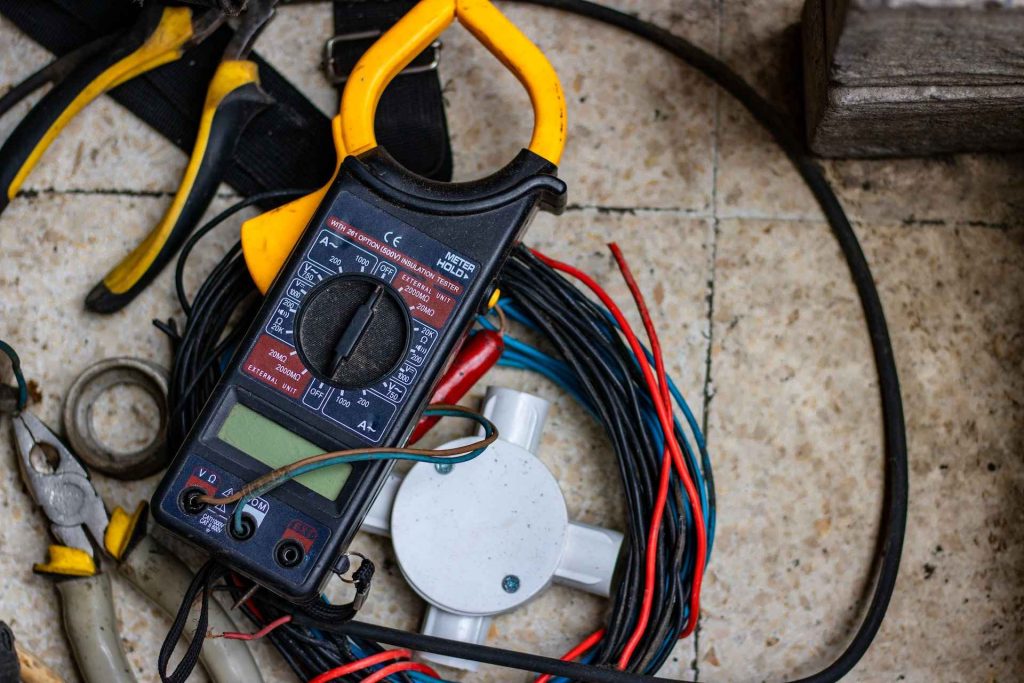Travel trailers are heavy, and without brakes they can take a long time to come to a complete stop. Now usually in travel trailer brake failure situations, the tow vehicle’s brakes are still functional and can work to stop the vehicle. But if a large, fully loaded trailer is hitched to a mid-size SUV or small truck, the tow vehicle’s brakes are unlikely to have enough power to stop everything.
All that to say, travel trailer brakes are important. It is vital for them to be fully functioning, especially before ascending and descending steep mountain passes.
If you’re not a mechanic, it can be difficult to diagnose faulty brakes on a trailer. This is especially true if you run into the perplexing situation of the trailer’s brake lights working, but the brakes themselves are not. What on earth is that indicating?
In this article I’ll discuss some of the most common causes of faulty trailer brakes, how to attempt diagnosing these issues, and potential solutions.
Quick disclaimer: The content on this blog is for informational purposes only and should not be considered a replacement for advice or information you would receive from a licensed professional. The information in this article is accurate to the best of my knowledge, and as such, might have errors or be missing key information.
What are trailer brakes?
Legally required in many US states and countries abroad, trailer brakes are a system installed on trailers above a certain weight that aid in the braking and stopping of trailers. They are designed to take the strain and weight of slowing or stopping a trailer off of the tow vehicle.
Trailer brakes allow a driver peace of mind and confidence while towing their rig. They can travel with ease, knowing they will have no problem quickly coming to a complete stop when they need to.

Electric brakes
Electric trailer brake systems utilize sensors, and a device called a brake controller to engage the trailer brakes when the tow vehicle is braking. When the brake pedal is depressed, the brake controller sends a current of power to the brake system on the trailer, triggering them to activate and begin stopping.
A brake controller, mounted somewhere in the cab of the tow vehicle, controls the power of the trailer brakes. The more current is sent from the brake controller to the brakes, the greater force is applied to the system, resulting in more stopping power.
Some brake controllers have adjustable resistors that allow the driver to manually adjust the current depending upon road conditions, elevation changes, or any other factors that may influence their trailer.
Inertia brakes
Inertia brakes utilize an internal sensor or pendulum to sense when the tow vehicle slows, and apply force to the trailer brakes at the same rate of deceleration as the tow vehicle.
While inertia brakes can provide smooth, clean braking on flat highways and paved roads, many RV technicians advise RV owners to go with electric brakes. This is because inertia brakes can misinterpret bumping and jostling from uneven roads as the tow vehicle intentionally braking. Once the inertia brake assumes the tow vehicle is braking, it begins braking as well, which can lead to dangerous driving conditions if the driver is not prepared.
Inertia brakes are best suited for folks who know they will not be driving their travel trailer on off-road conditions.
For the purposes of this article, I will be focusing on troubleshooting issues with electric trailer brakes, as they are much more common than other types of trailer brakes.
What can cause trailer brake failure?
Based on anecdotal evidence from RV owners and full-time RVers, the four most common causes of trailer brake failure are:
- Corroded or broken 7-way trailer plug
- Malfunctioning brake controller
- Faulty trailer wiring
- Worn brake system
These four issues can present themselves at any point in the life of a trailer. While it’s certainly not ideal to discover any of these problems, luckily none of them require absurdly expensive or lengthy repairs.
A few minor ways that trailer brake failure occurs include loose wire nuts, blown fuses, or trailer brakes getting too hot while descending a mountain road.

Troubleshooting why your trailer brakes are not working
Alright, let’s run through the best ways to go about attempting to diagnose why your trailer brakes are not working.

5-way” plug. If the pins housed in these plugs become corroded, dirty, or damaged, they are not able to communicate, or send power effectively between the vehicle and trailer. This leads to malfunctions including brake failure and signal lights not working.
To check a 7 or 5-way trailer plug, first give it a visual inspection. If you notice dirt, built-up corrosion, or debris in the plug, give it a thorough cleaning. After cleaning away corrosion, use 220 grit or higher sandpaper to scuff up the pins. This will clear away any remaining corrosion and allow the pins the metal-to-metal contact they need to conduct electricity.
If cleaning the plug yields no difference, use a circuit tester or multimeter to test if power is reaching the pin itself. If the circuit tester indicates that no power is reaching the pin, the fault lies in either the wiring, or the brake controller.
Checking the brake controller
A circuit tester is also handy to have on hand while testing the brake controller. Locate the controller and remove any covers that might block access to the wire connections. First test that power is being fed to the device by testing the black input wire. If that tests fine and the device is connected to power, test the red wire while pressing the brake pedal. This will indicate if current is present while the brake pedal is being used.
Move on to the blue wire and check if there is voltage present while activating the manual brake switch. If all of these connections test fine and appear to be functioning properly, the problem likely lies elsewhere.
While testing plug circuits, you may notice power for the lights working while power for the brakes is not. This is what causes the frustrating issue of trailer brakes not working while the trailer brake lights work fine. It’s because they run on separate circuits in the wiring harness.
Checking for faulty wiring
Starting from the tail end of the trailer and moving forward, check every exposed inch of wiring for nicks, bends, scuffing, or any type of damage. A damaged wire is likely to result in the failure of trailer electronics.
Any wiring that is charged with current and comes in contact with a grounded chassis can cause a system short. If the system shorts, a fuse or breaker in the system will have blown or flipped and must be replaced or reset.
If all brake wiring on the trailer looks fine visually, and a circuit tester can confirm all wiring is sound, move onto the tow vehicle. Do your best to trace wiring back to its original source, checking for damage along the way.

Checking for worn brakes
It’s one thing to check for worn brakes, but I do not suggest working on them yourself unless you are professionally trained.
After removing the wheel, check that all of the springs in the system are still secure and taught. Make sure the electromagnet can still move freely, and that the arm holding it has the ability to swing and move with the motion of the brake. The electromagnet sometimes has wear indicators that will show if it has been worn down to a dangerous level.
Give the brake drums an eye and ensure it has not been worn too thin or cracked. If you find any visible damage to the brake system, hire a mobile mechanic or RV technician to come out to your trailer and inspect it.
Never drive a vehicle or tow a trailer with faulty brakes.
Give this video a quick peek if you want a visual explanation on checking trailer brakes.
Precautions for driving a trailer with no brakes
Whether we like it or not, accidents happen, and things break. Someday you might find yourself cruising along the highway with your trailer, and then suddenly realize that your trailer brakes are not working.
What does one do in this type of situation?
Well, if you are driving on an open, flat highway when your trailer brakes fail, calmly throw your turn signal on, and find a safe moment to pull off on the shoulder. From there, the safest move is to call a heavy-duty tow truck that can tow your trailer to an RV shop.
If you don’t have far to go and your tow vehicle has strong, powerful brakes, you can consider completing your journey. Just remember to keep speeds low and give yourself two or three times more distance to brake as you normally do.
If your brakes give out while descending a mountain pass and you realize you cannot stop your rig, first, stay calm and avoid panicking. Panic will cloud vision and decrease your ability to make rational decisions.
Throw your hazard lights on and use the brakes of your tow vehicle to slow down as much as possible. If people start honking in annoyance, pay them no heed and just focus on the problem at hand. Eventually, the road will level out, or you will see a runaway truck ramp. If you don’t think you can stop without the runaway truck ramp, use it.
Once stopped do not resume driving. Bite the bullet and pay for a tow into town. It might be expensive, but it’s the safest choice at that point.
Frequently asked questions
Check out what our other readers are asking us about trailer brakes.
Do all trailers have trailer brakes?
Nationwide, there is no standard rule or regulation that states what size or weight trailer requires trailer brakes. If you are in the market for a travel trailer, err on the side of caution and make sure your new toy has brakes.
Why are my trailer brakes working, but not my trailer lights?
This situation is most likely caused by damage to a wire in the trailer wiring harness. That, or you got unlucky and both brake bulbs burned out on the same day.
What are trailer brake shoes?
A trailer brake shoe is the component of a trailer braking system that actually causes the friction that stops the vehicle. Whereas brake pads squeeze together to create friction, brake shoes expand out.
Conclusion
To repeat myself shamelessly, please be very careful while diagnosing issues and working on your trailer’s brakes. There are very few parts on a rig that are so critical to safety on the road.
With that said, do your best to figure out what is causing your braking issues, but don’t sweat it if it is beyond your capabilities. If you can troubleshoot the issue, congratulations! Consider it another great step towards RV mastery.
But remember, mechanical work is difficult and confusing, which is why some people pay tens of thousands of dollars to become trained professionals. Don’t be ashamed if you need to take your rig into one of those professionals.
Happy camping!



